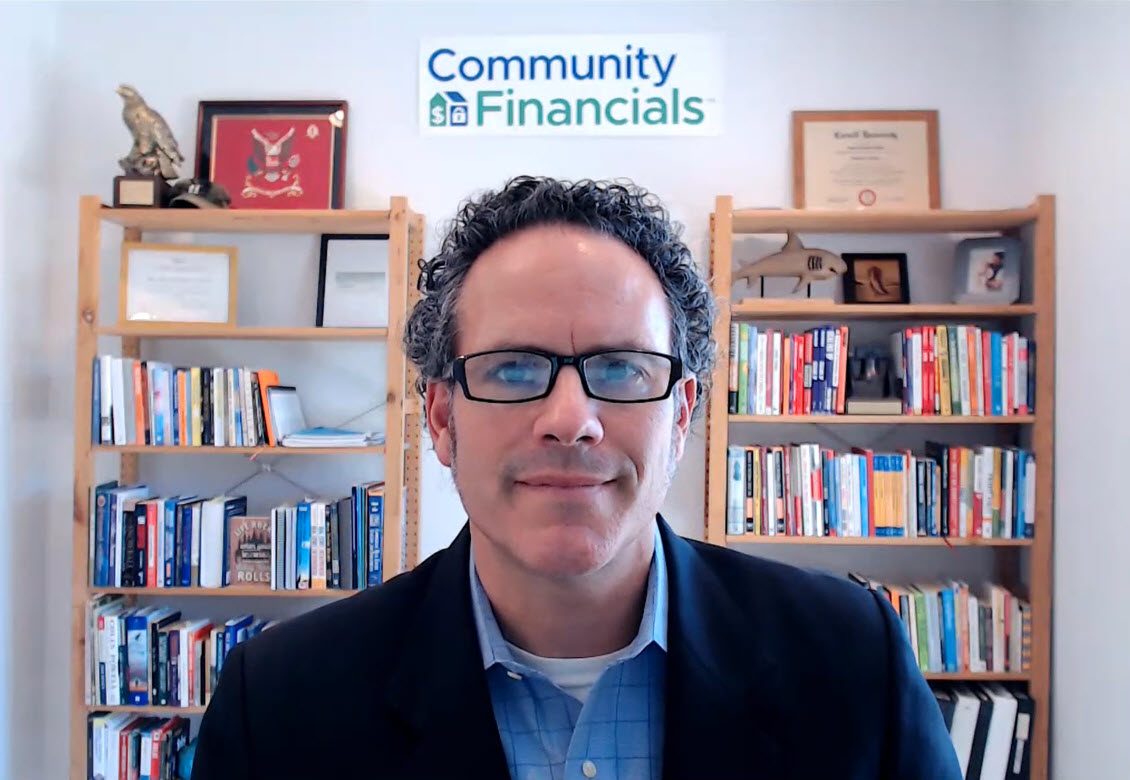HOA and Condo Resale, Escrow and Lender Documents: The Good, The Bad, and The Risky!
A homeowner in your self-managed condominium has just requested a resale package and wants to close next week. The Association Treasurer just left for a two-week honeymoon. The Association President steps in and makes a copy of his own document package he received when he bought his unit 5 years ago and offers it to the selling owner. I think you see this is going to be a problem, and a big one at that because the 5-year-old copied documents didn’t include new revisions that prohibit pets, and the buyer of the unit is bringing his two German Shepherds with him when he moves in. Uh oh!
This particular example may seem a bit far-fetched but there are few things worse than when a self-managed condominium association or HOA fails to produce accurate and timely Resale and Escrow Documents. At best, it will create confusion for buyers and sellers. At worst, it will create lawsuits where the Board and the entire association are at risk of being sued.
I spoke with Greg Pater, CEO of HomeWiseDocs.com, since his firm deals with real estate disclosures and refinance disclosures, for some examples of hidden risk to Board Members that he and his firm have encountered. Not surprisingly, there were quite a few risks to association Boards that “go it alone”. Most states throughout the U.S. have promulgated state statutes that delineate the requirements needed to take place when selling a home within a Common Interest Development (or HOA). These can be broken down into disclosure to the buyer, the financial condition of the unit owner, and the condition of the unit itself (as defined by the restrictions within the declarations). Additionally, there are other selling functions not regulated by state statute that need to be performed by the HOA or its management company, that when performed are associated with considerable risk. Having a qualified professional community management company performing these critical tasks adds a significant layer of risk mitigation that every HOA board should consider.
Quite often, penalties for not adhering to disclosure performance guidelines are built into state disclosure statutes. These risks are not insignificant and typically fall into the categories of penalty fees or forfeiture of fees earned. The real risks associated with the disclosure process revolve around inaccurate, incomplete, or missing information or documentation. Here is where the courts play a significant role. If any of the aforementioned conditions exist a buyer may cancel the sales contract or may execute the sales contract on bad information. Both events have significant negative consequences. If the disclosure information is inaccurate and the buyer cancels the contract the seller has every right to review the information provided by the board to determine its accuracy. A court could determine the amount of damages to that seller may include the value of the home, time spent researching the information, costs already incurred for the expected move, etc. Board of Directors insurance and HOA insurance may cover any damages awarded by the court, but will almost certainly result in higher premiums and deductibles in the future.
HOAs should review their policies to ensure that they cover this risk including exclusions and endorsements within the policies. When a buyer acts on inaccurate or incomplete disclosure information and purchases a unit, this may come with even more risk than the example above. If key deed restriction information is not correctly disclosed to the prospective buyer, they may now own a unit they have no desire to live in. Again, the courts are the buyer’s recourse here and if it can be proven that the disclosure was faulty the HOA and board are at significant risk. Following is an actual example of such exposure.
Earlier this year a buyer purchased a large home near the State Farm Stadium in Glendale, Arizona for the express purpose of short-term rentals during the frequent sporting events hosted at the stadium. The home was purchased for just under a million dollars. Subsequently, the owner started to rent the unit as he originally intended. The management company discovered this was happening a cited the owner for a violation of the declarations that clearly state the number of rentals is limited and no rentals less than 30 days were allowed. The buyer stated this information was never disclosed to him and then decided to sue the association, management company and the board for just under a million dollars.
Fortunately, the management company used the disclosure services of a third-party entity that could independently prove that the required disclosure information was sent, disclosed, and actually opened by the buyer. When this information was shared with the homeowner the suit was ultimately dropped saving the board, HOA, and the management company significant time, money and effort, while at the same time mitigating disclosure risk almost completely. Most disclosure and closing services provided by part-time, self-managed HOA volunteers would be incapable of providing the independent proof required to oppose this legal action.
In addition to disclosure requirements for HOA unit sales, self-managed HOAs must also disclose accurate financial information to respective closing agents within their market. For HOAs with annual fees where the owner is current and has no violations against the unit this is a fairly straightforward process, but complicate the sale with covenants identified in the declarations, required Working Capital Contributions, special assessments, move-in or move-out fees, violations, penalties or fines, the process can become very complex. If this information is not presented clearly and accurately to the closing agent, required funds may not be collected at closing and can be very difficult to collect after closing. The consequences of such actions could be loss of ancillary revenue to the association or worse, an underfunded budget. In the latter case, the membership of the entire association will be required to make up that deficit.
For those HOAs that are condominiums or cooperatives, an additional risk the HOA or board members may undertake is to complete a Lender Questionnaire Letter required to obtain unit financing by a homeowner. Many condominium homeowners don’t understand that the lender must underwrite the financial and market risk of the condominium or HOA as well as the loan applicant risk. Once lenders underwrite that risk, they make representations and warranties to the agencies that buy mortgage loans (like Fannie Mae and Freddie Mac) indicating that the condominium meets the lending requirements established by those agencies. Many of the data elements required by lenders can only be provided by the HOA, its board, or a management company familiar with the HOA. Not knowing what you’re getting into by completing one of these forms can be quite risky. There have been many instances where the data about the condominium will prevent a lender from approving a loan and the homeowner will pressure a board member or HOA volunteer to change seemingly inconsequential data in order for their loan to become approved. While the board member or volunteer believes they are helping the homeowner, they are actually committing loan fraud. If identified this can be considered felony wire fraud because loans are purchased by wire transferring funds through the Federal Reserve System. Additionally, mortgage fraud can be punishable by a prison term and fines up to $10,000 per occurrence. Assuming that an HOA believes that fraud is a risk that can be avoided, it doesn’t mean that the risk of completing a Lender Questionnaire is abated. Do the board members or HOA volunteers understand the risks of answering specific questions within the Lender Questionnaire? Some of the answers may not be fraudulent but, may in fact be inaccurate or should have never been answered at all! Take this question for example; “Is the budget adequate to cover the costs of operations and capital improvements of the condominium project”? A board member, HOA volunteer, or management company should never answer this question. This question was meant for the lender to complete after they reviewed the condominium’s budget, the unit appraisal, and current financials. Many factors can influence the financial performance of a condominium including unforeseen items. Why would the HOA put themselves at risk to answer a question that really shouldn’t be answered? Quite often individuals completing the Lender Questionnaire don’t understand that the answer to each question contained within the Lender Questionnaire is the responsibility of the lender to obtain and analyze. These same individuals usually don’t have the expertise to complete the document. Like any disclosure document, inaccurate information provided by the HOA within the Lender Questionnaire is subject to the same legal risks as outlined before. If Fannie Mae or Freddie Mac audit a condominium loan they purchased and discover that information within the Lender Questionnaire is inaccurate, they may require the lender to repurchase the loan. That means the lender will have to use their own funds to buy the loan back. This action carries negative financial implications for the lender and they will use any means possible to get the loan off of their books. This could be accomplished by selling the loan to another agency or suing the HOA for the inaccurate data contained within the Lender Questionnaire.
The question a board has to ask themselves is why would they take on resale disclosure risk when it is unnecessary? How do you prove that you have done everything correctly? Can you rely on individuals that have no real experience and systems that are not built specifically for resale purposes to accomplish these tasks? The risk can be mitigated by employing the services of a licensed, qualified community management or financial management company. At a minimum, there is an additional layer of risk avoidance garnered, but HOAs should request that the financial /management company’s E&O insurance has an additional insured endorsement that is primary and non-contributory, meaning the financial /management company’s insurance will be the only policy affected if a claim is used to settle a lawsuit. At best, you have professionals that handle the resale disclosure function regularly and are proficient at meeting your association member’s needs, while mitigating all of the risks associated with this increasingly litigious process.
Condominium Associations and HOAs are in the Resale and Escrow business whether they like it or not. Self-managed associations, in particular, do not need to take on the risk of getting it wrong even if their intentions are good. Community Financials can help. Get in touch today to discuss how we can assist with your Resale and Escrow needs and reduce the risk for your condominium association or HOA.


